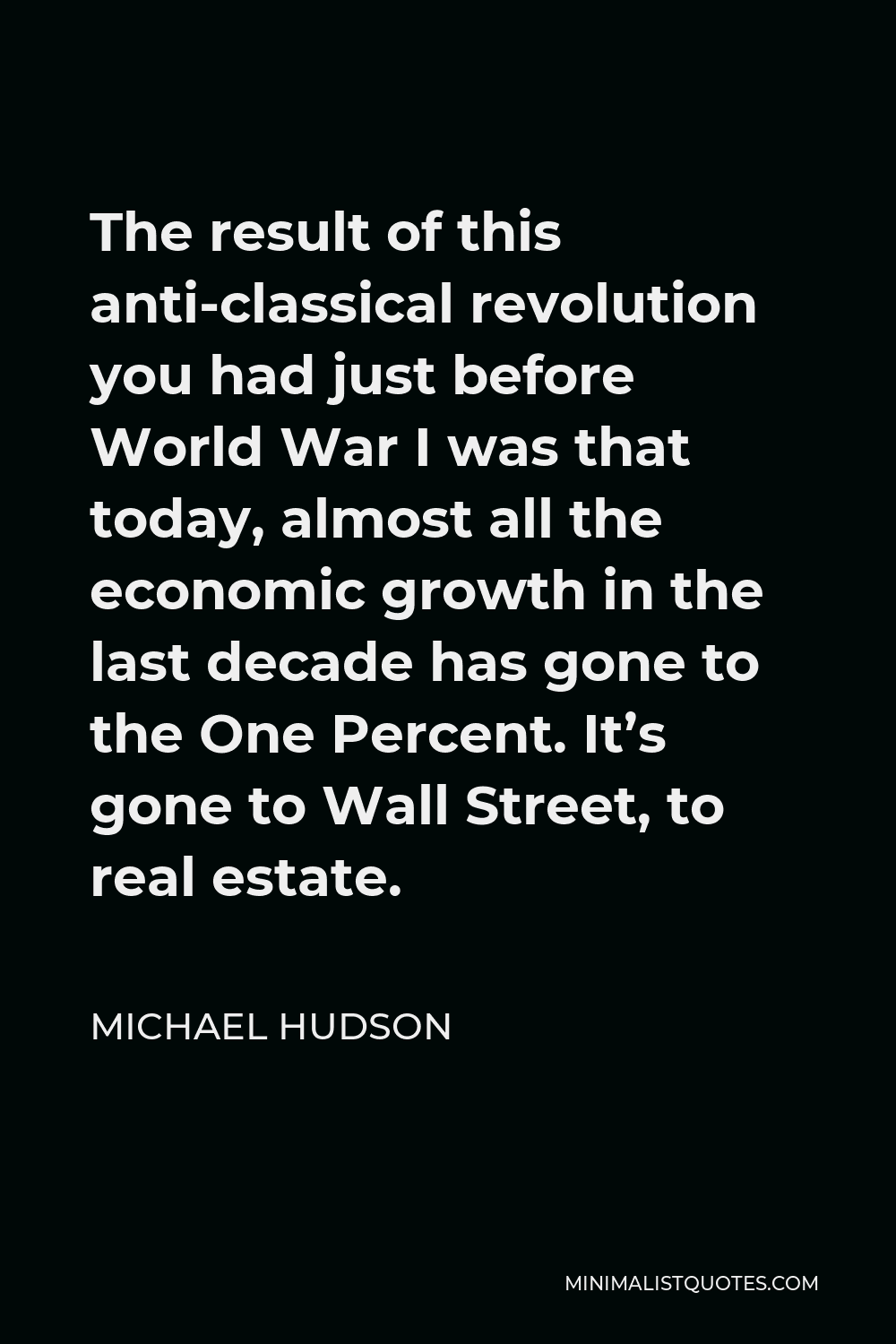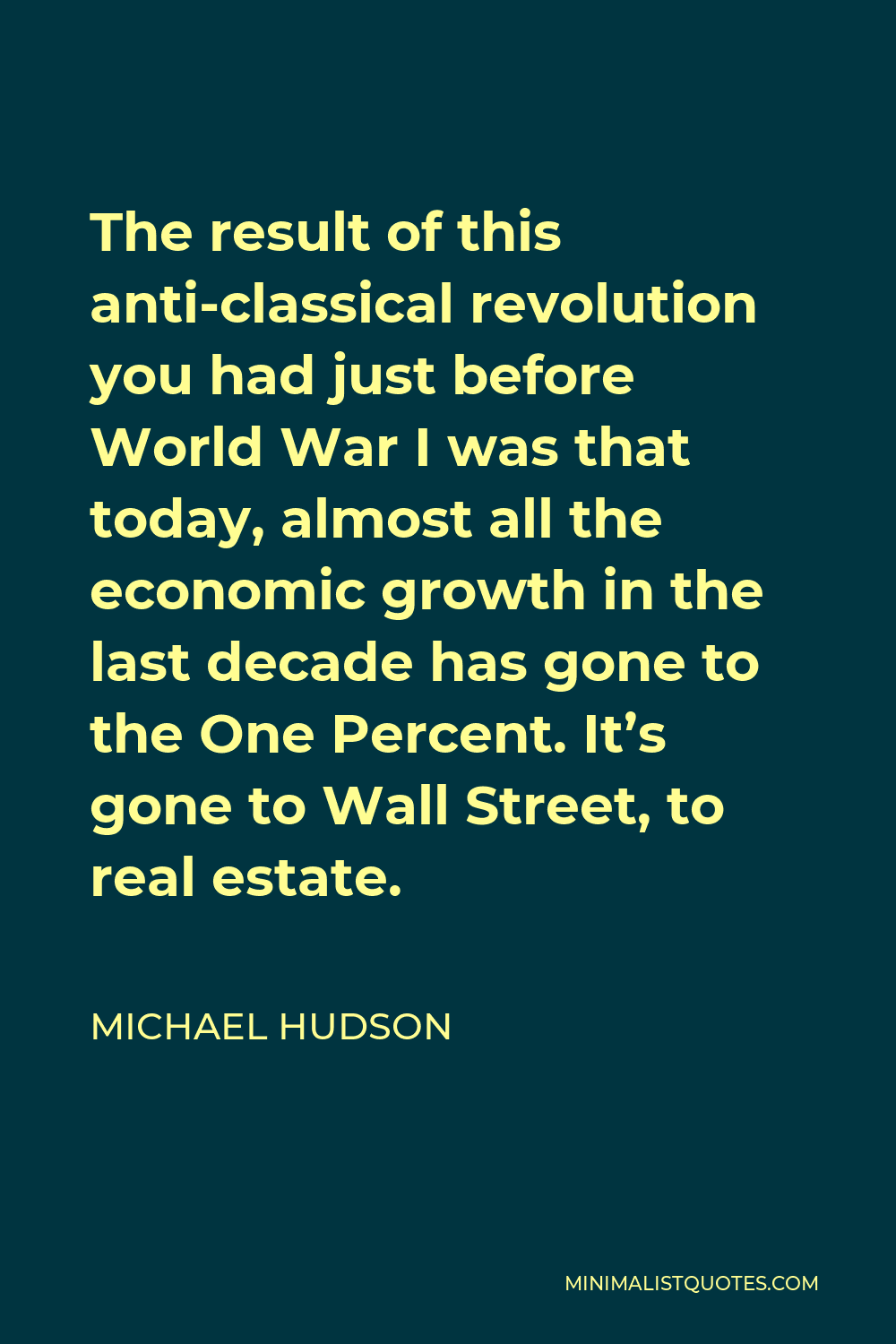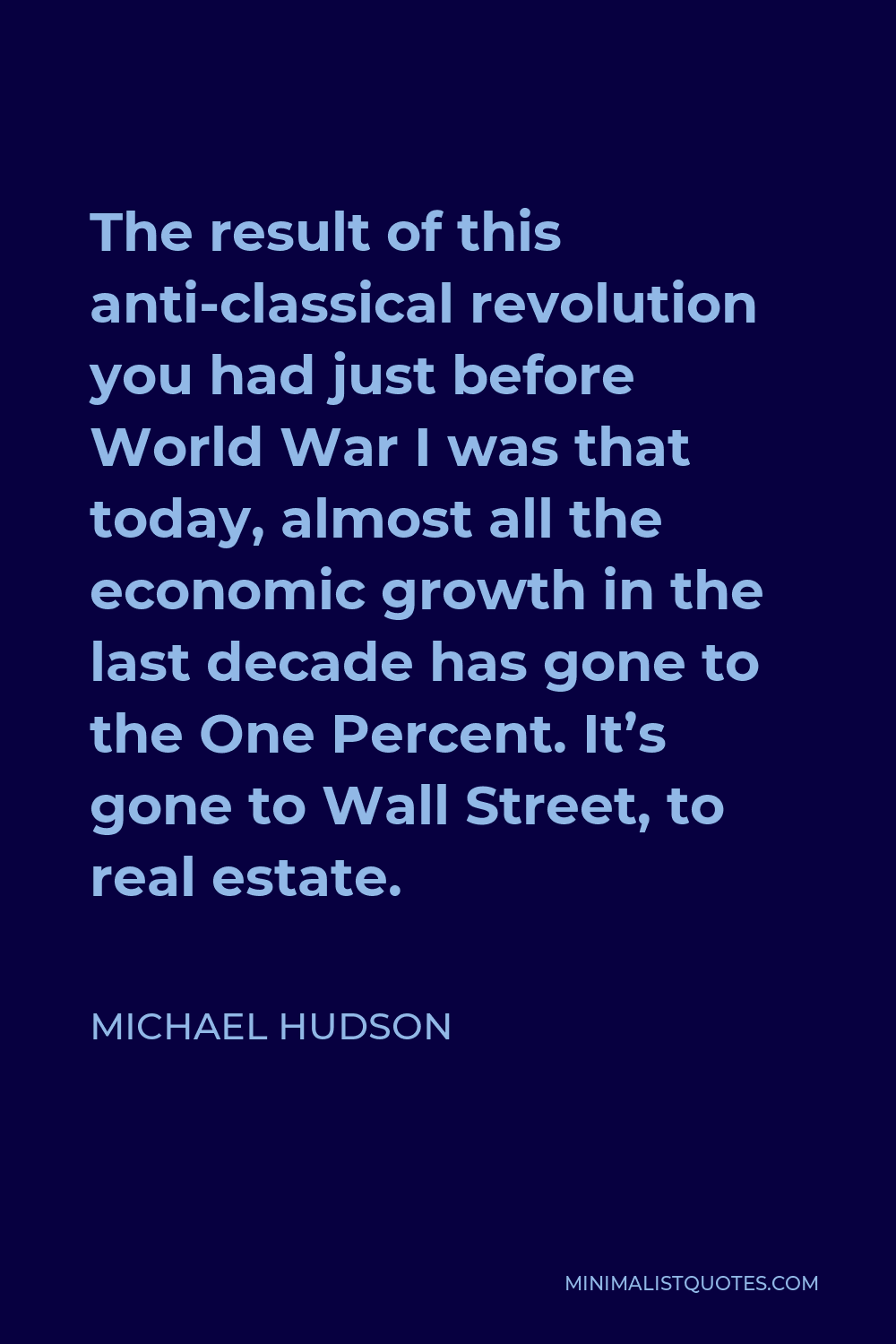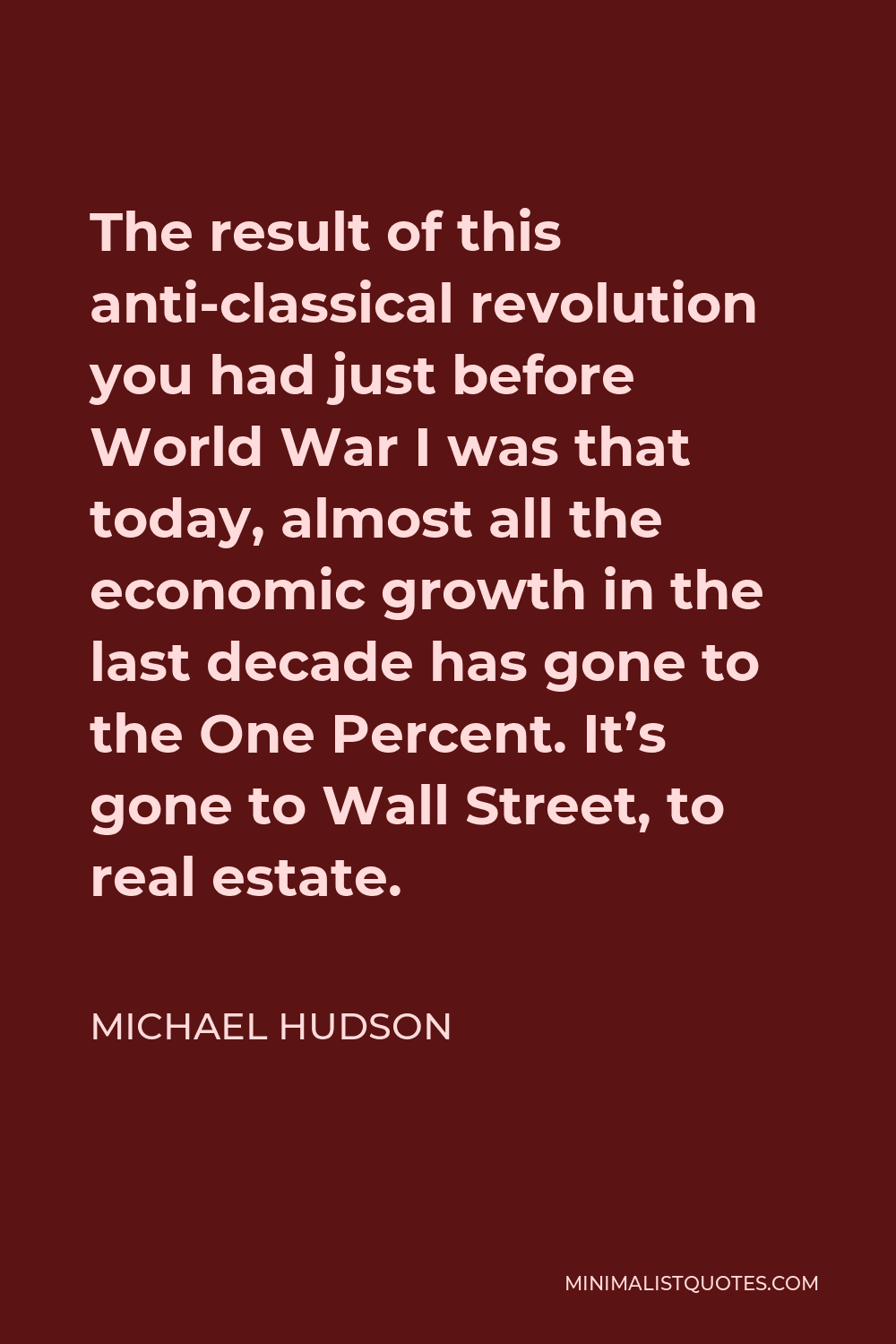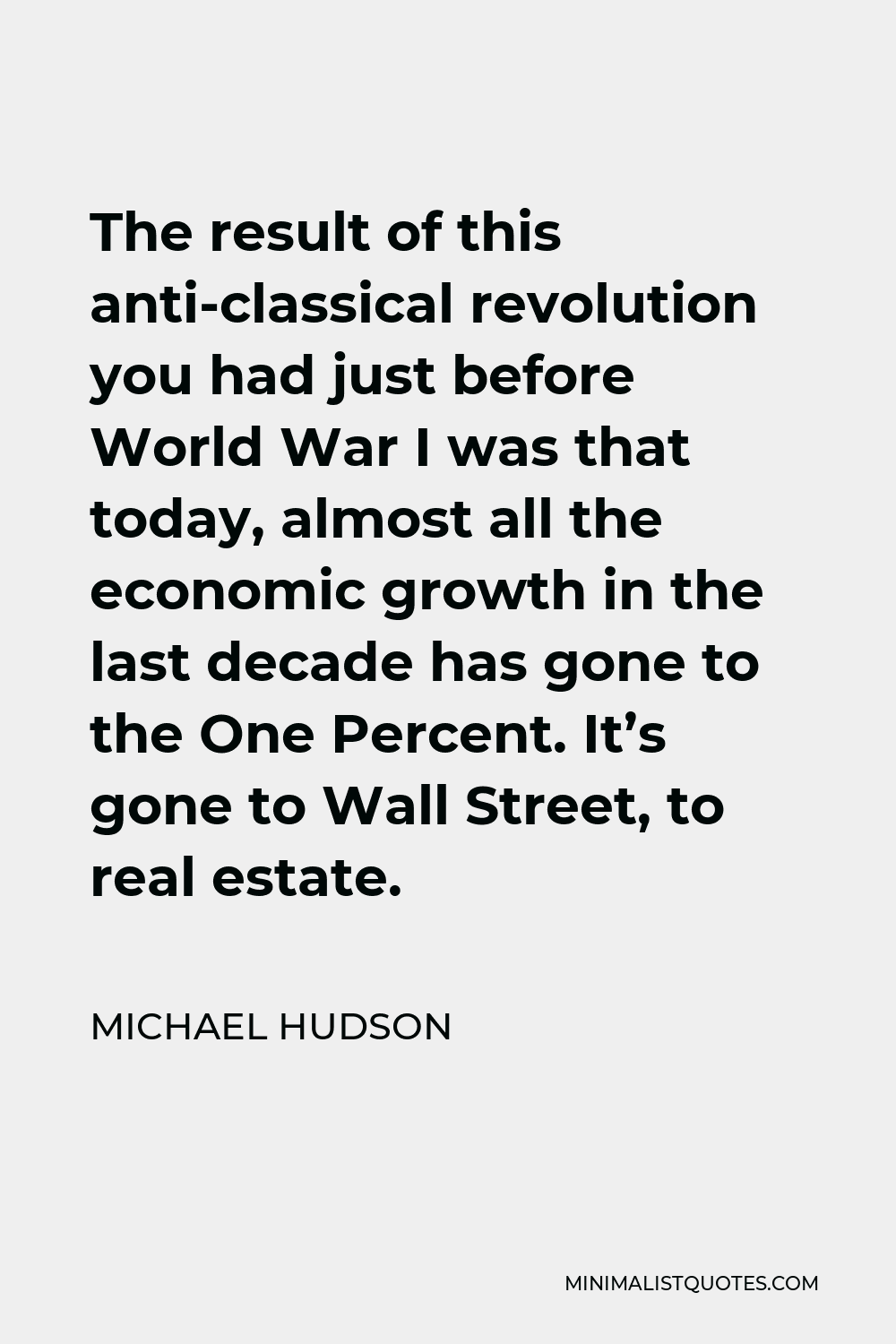Junk economics denies the role of debt and denies the fact that the economic system we have now is dysfunctional.
MICHAEL HUDSONThe result of this anti-classical revolution you had just before World War I was that today, almost all the economic growth in the last decade has gone to the One Percent. It’s gone to Wall Street, to real estate.
More Michael Hudson Quotes
-





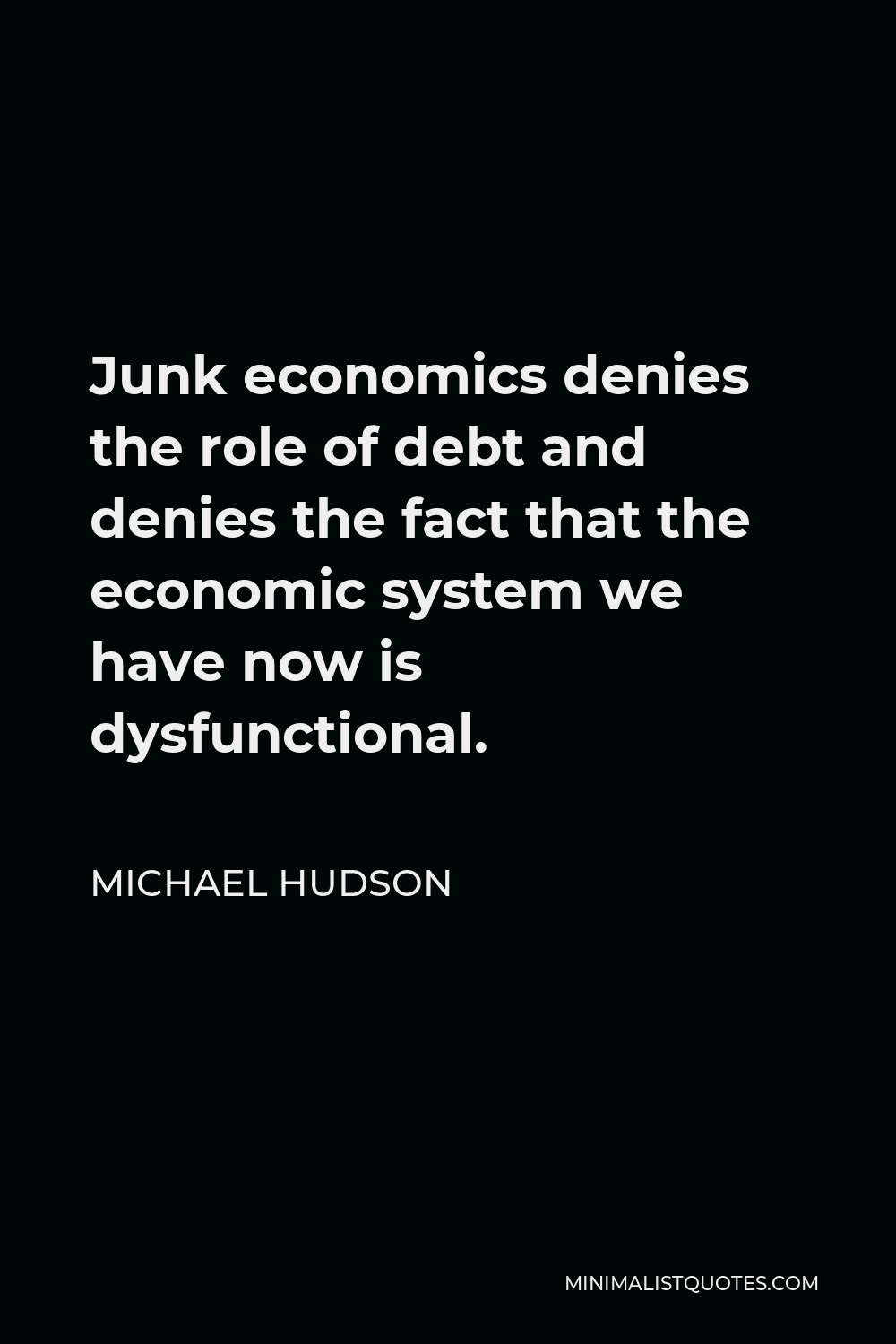
-






Russia was under the impression that the neoliberal advisors were going to make Russia as rich as the United States. What they really did was create a kleptocracy that was virtually tax-free.
MICHAEL HUDSON -





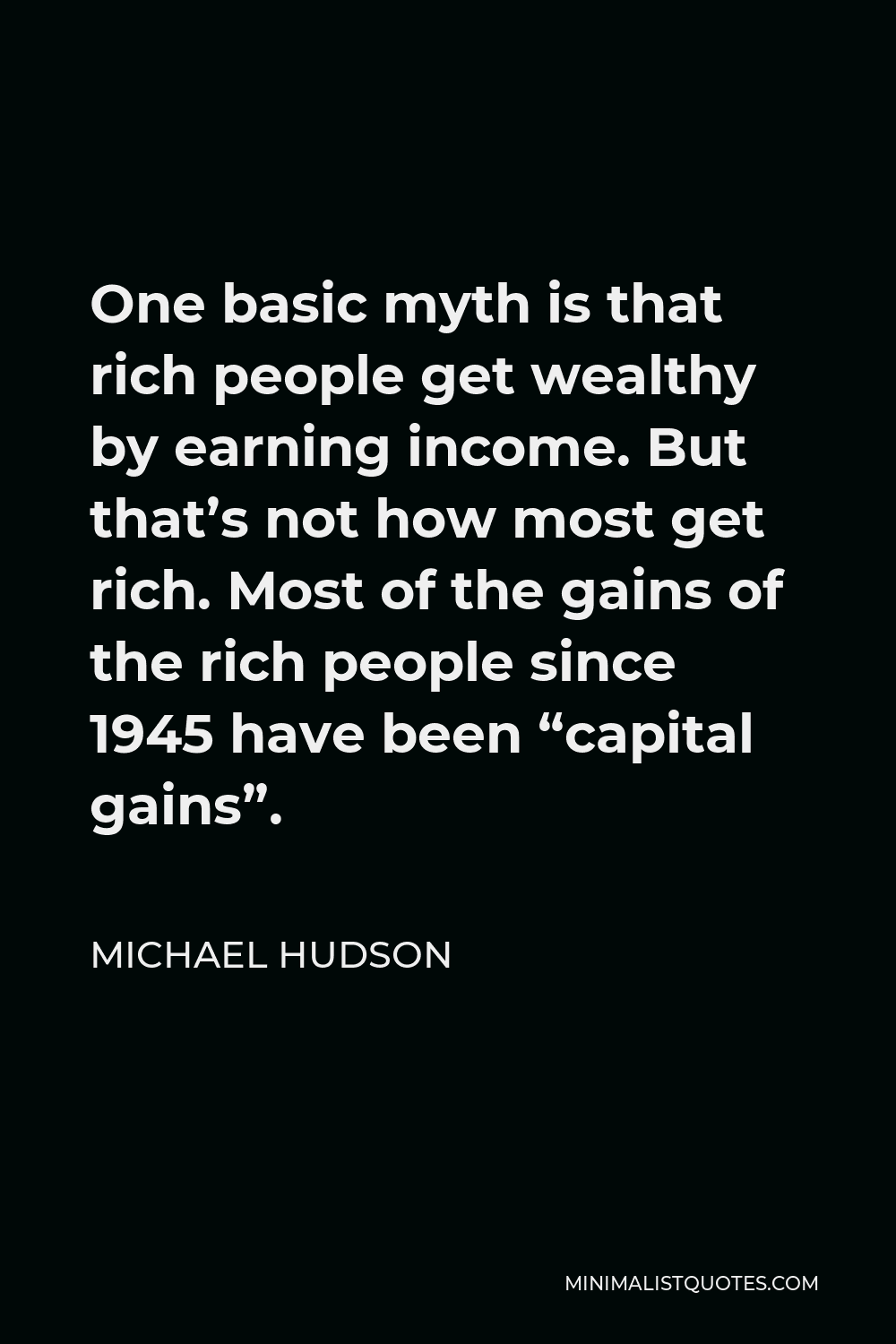
One basic myth is that rich people get wealthy by earning income. But that’s not how most get rich. Most of the gains of the rich people since 1945 have been “capital gains”.
MICHAEL HUDSON -






Much higher cost for all the infrastructure that he’s proposing. You could call Trump’s plan “public investment to create private profit”. That’s really his plan in a summary.
MICHAEL HUDSON -





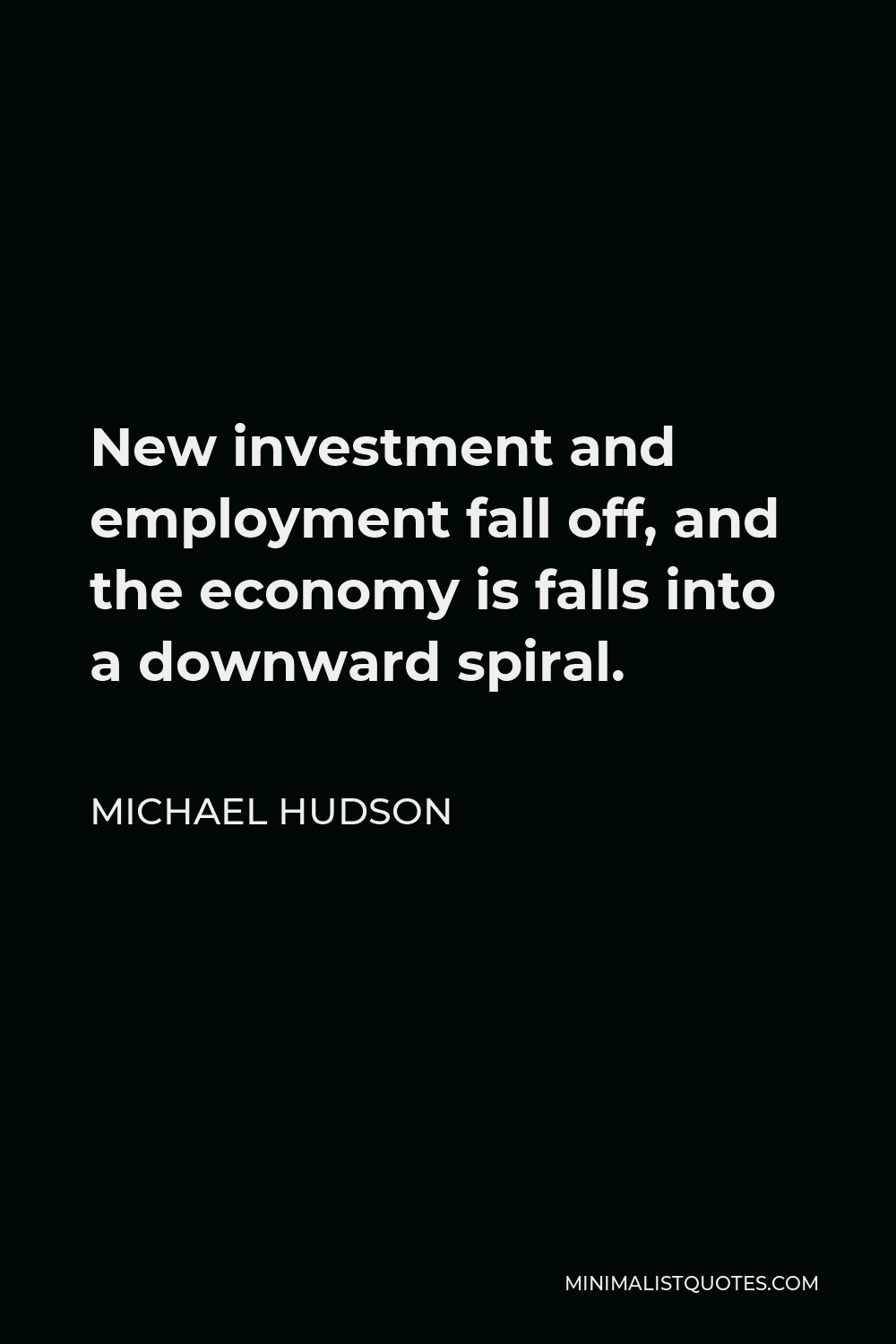
New investment and employment fall off, and the economy is falls into a downward spiral.
MICHAEL HUDSON -





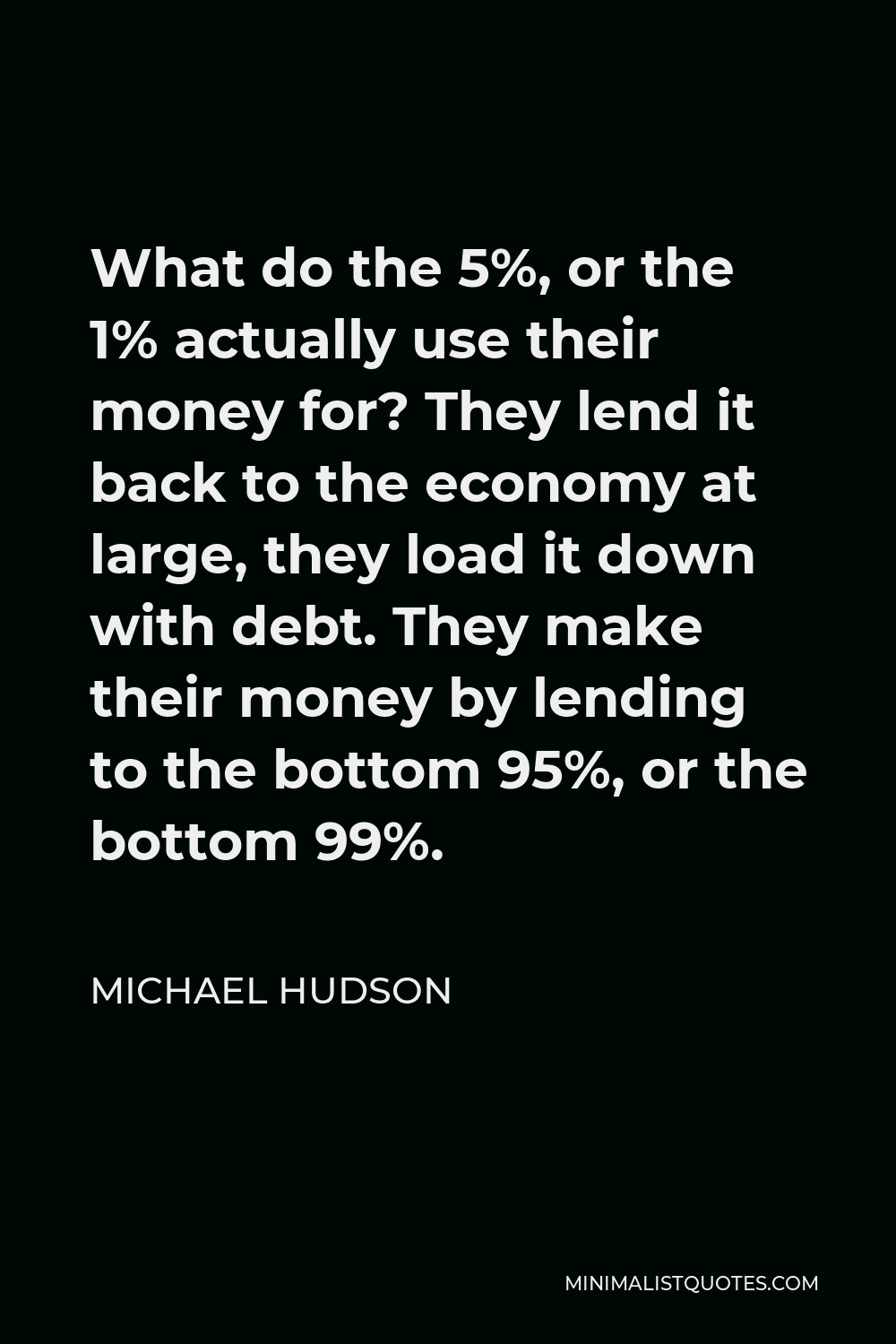
What do the 5%, or the 1% actually use their money for? They lend it back to the economy at large, they load it down with debt. They make their money by lending to the bottom 95%, or the bottom 99%.
MICHAEL HUDSON -






Every government, from the Obama administration right through to Angela Merkel, the Eurozone and the IMF, promise to save the banks, not the economy.
MICHAEL HUDSON -






There are two definitions of deflation. Most people think of it simply as prices going down. But debt deflation is what happens when people have to spend more and more of their income to carry the debts that they’ve run up – to pay their mortgage debt, to pay the credit card debt, to pay student loans.
MICHAEL HUDSON -






you’ll load the company you take over with debt. But you don’t have to pay taxes on the profits that you pay out in this way. You can deduct the interest from your tax liability.
MICHAEL HUDSON -





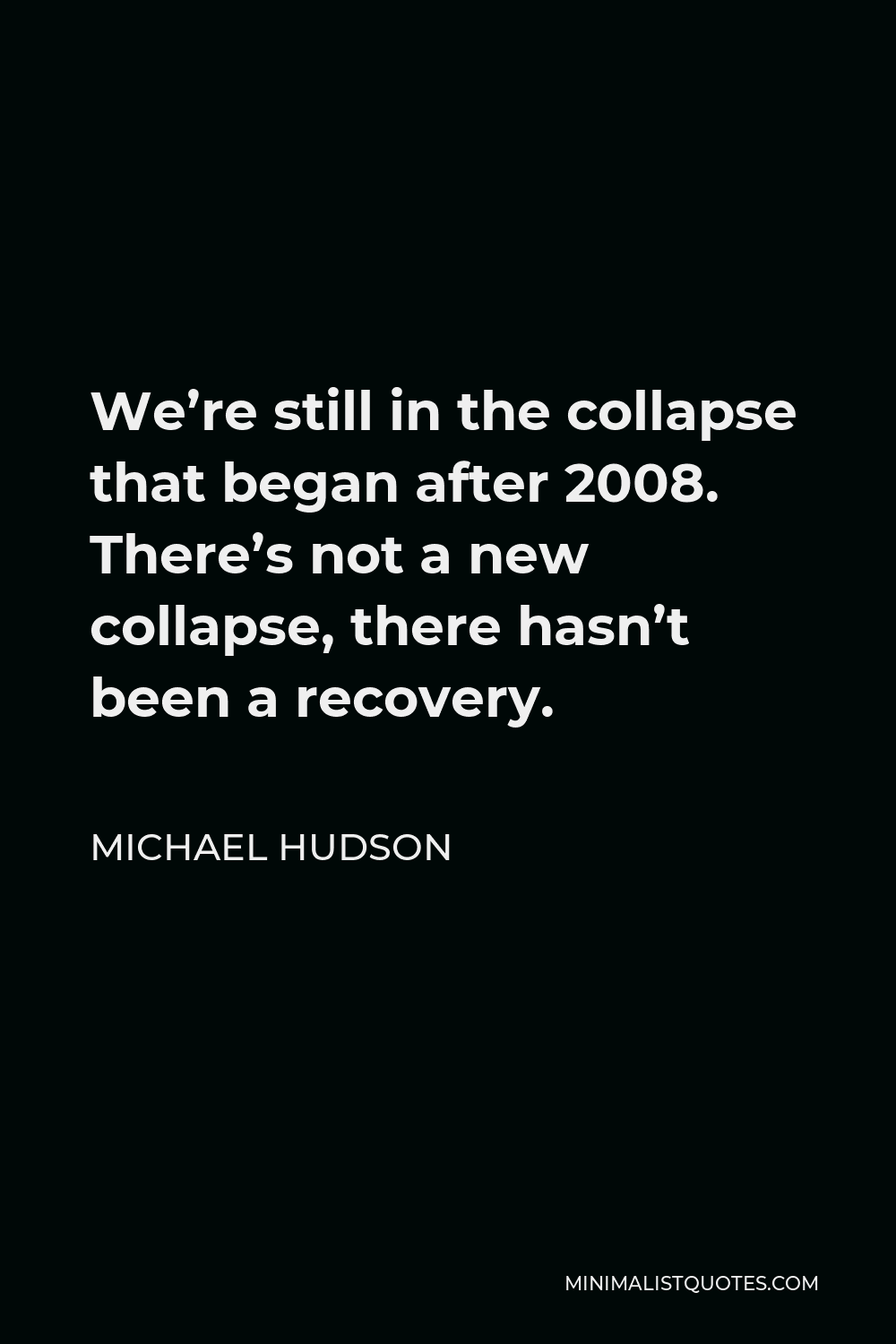
We’re still in the collapse that began after 2008. There’s not a new collapse, there hasn’t been a recovery.
MICHAEL HUDSON -






People are putting their money into treasuries because they worry that the risk of putting their money into the bond market, the stock market or even the money markets is very high.
MICHAEL HUDSON -





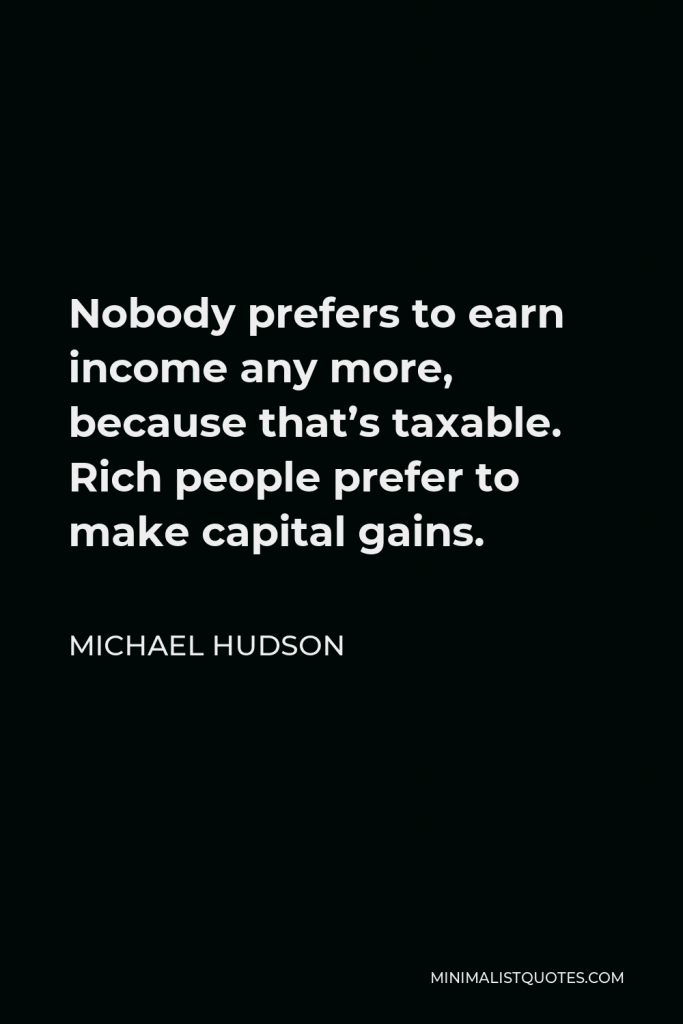

Nobody prefers to earn income any more, because that’s taxable. Rich people prefer to make capital gains.
MICHAEL HUDSON -





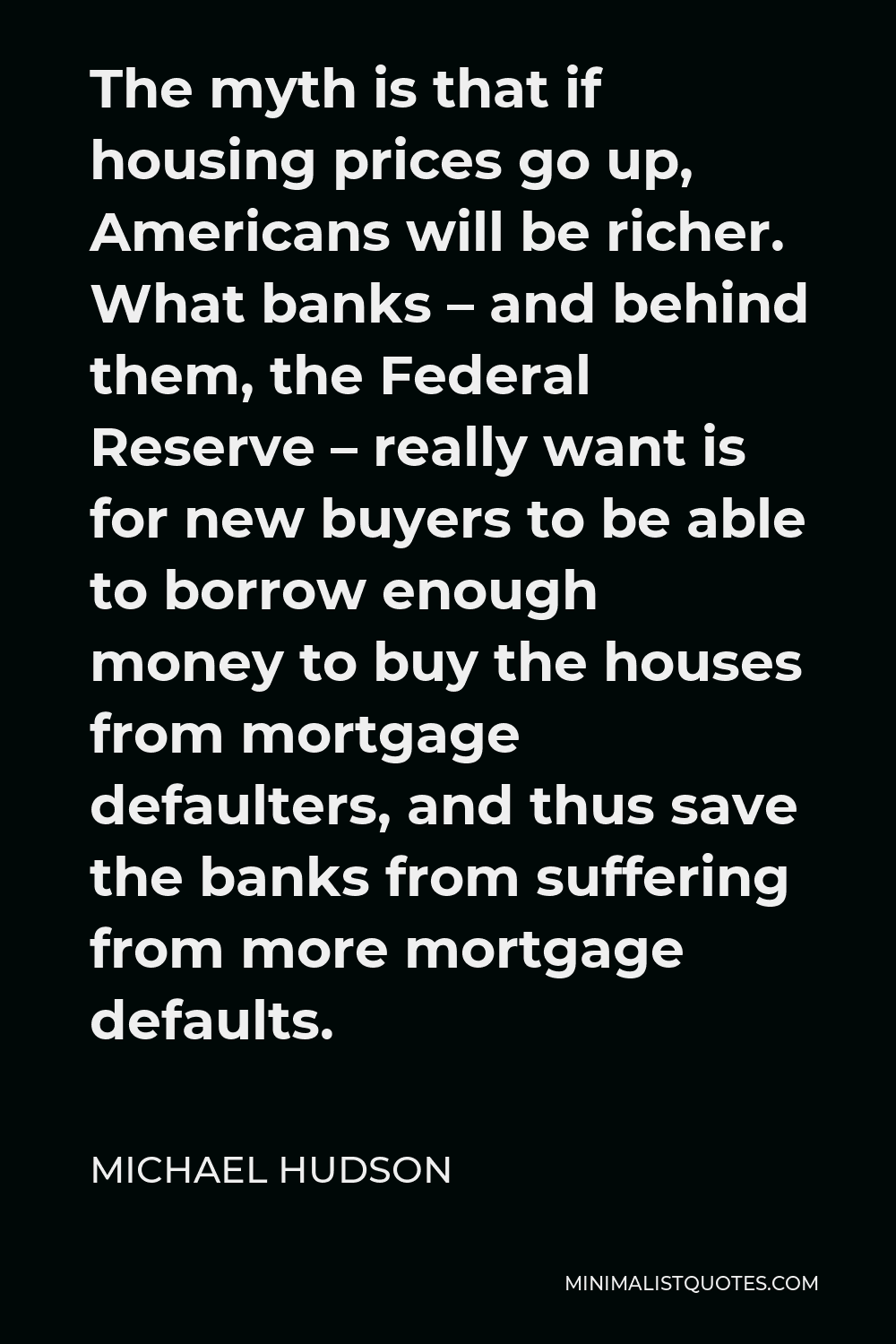
The myth is that if housing prices go up, Americans will be richer. What banks – and behind them, the Federal Reserve – really want is for new buyers to be able to borrow enough money to buy the houses from mortgage defaulters, and thus save the banks from suffering from more mortgage defaults.
MICHAEL HUDSON -





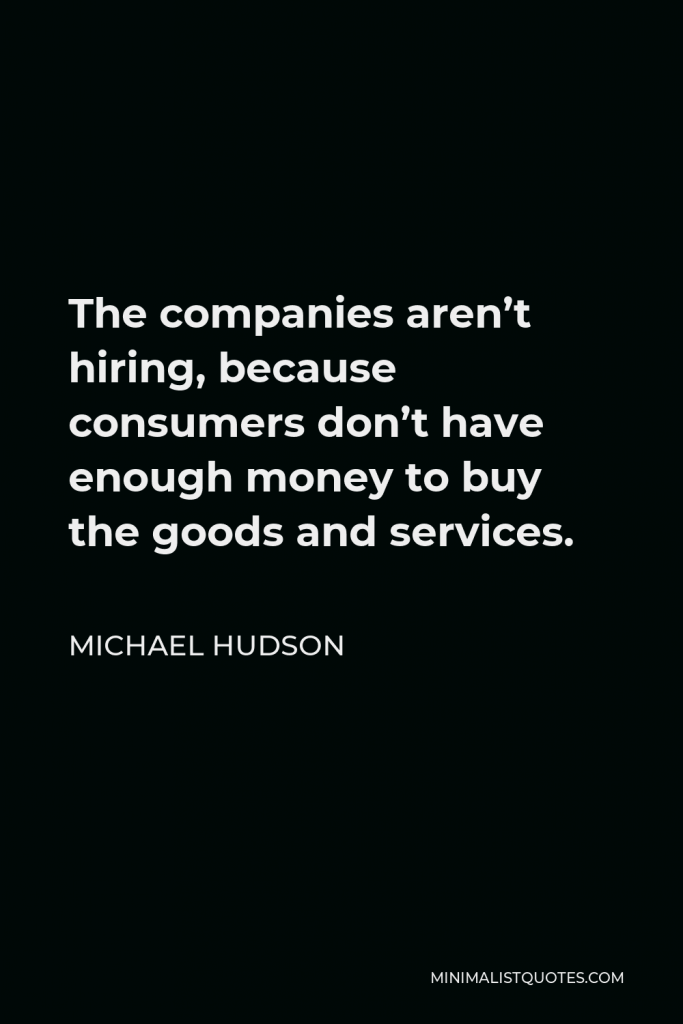

The companies aren’t hiring, because consumers don’t have enough money to buy the goods and services.
MICHAEL HUDSON -





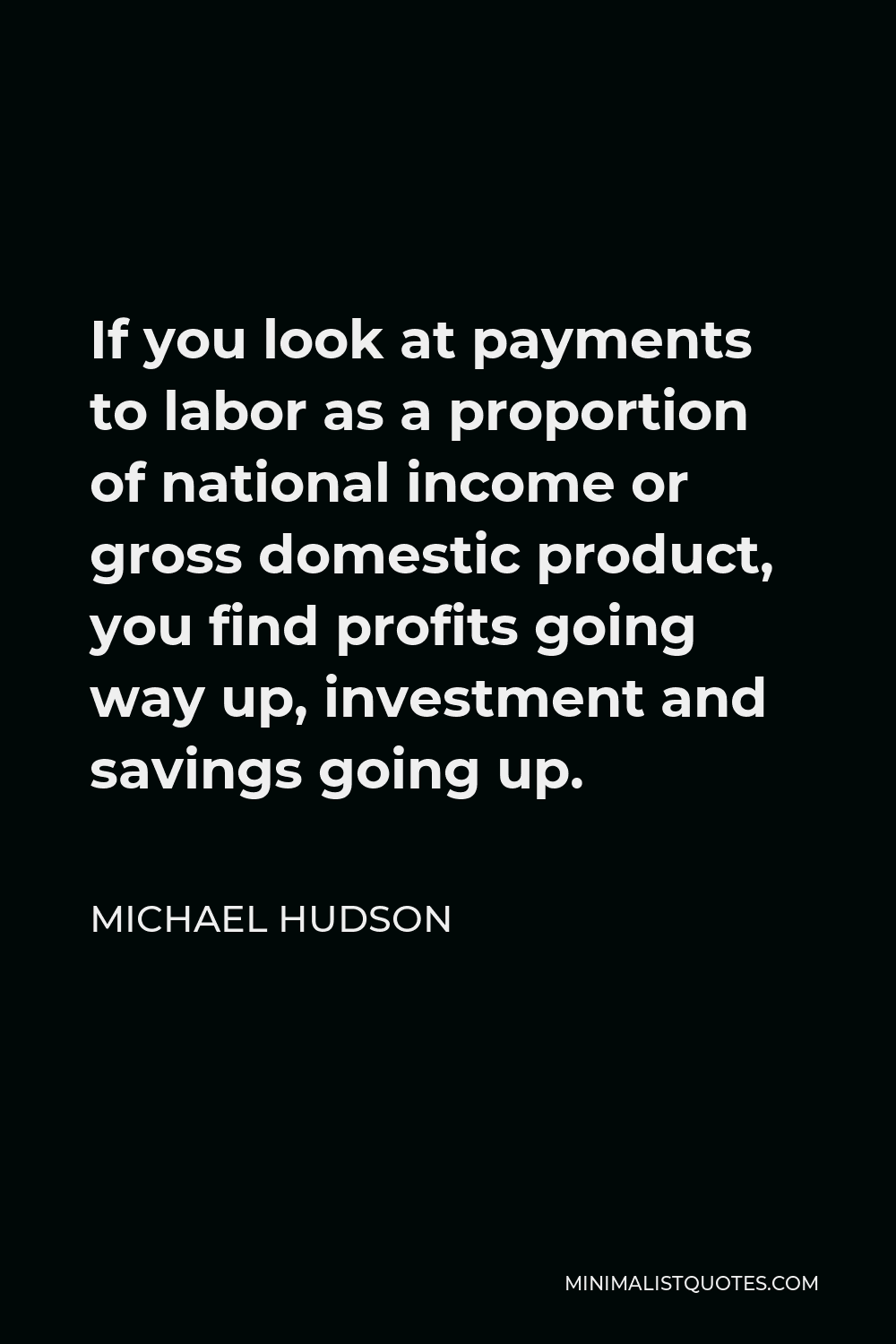
If you look at payments to labor as a proportion of national income or gross domestic product, you find profits going way up, investment and savings going up.
MICHAEL HUDSON -





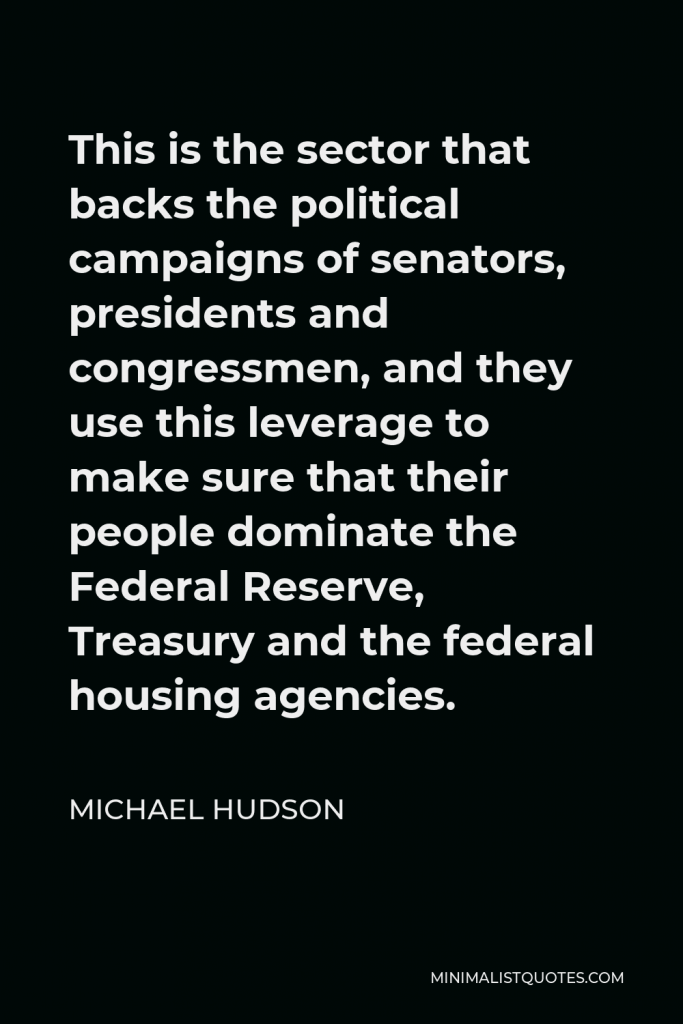

This is the sector that backs the political campaigns of senators, presidents and congressmen, and they use this leverage to make sure that their people dominate the Federal Reserve, Treasury and the federal housing agencies.
MICHAEL HUDSON
